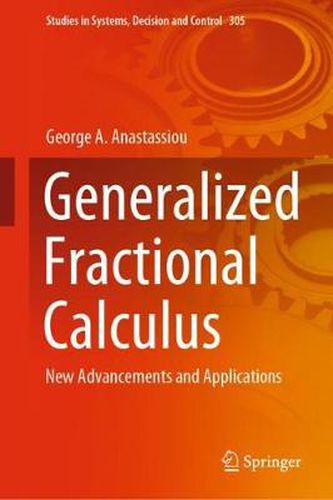Readings Newsletter
Become a Readings Member to make your shopping experience even easier.
Sign in or sign up for free!
You’re not far away from qualifying for FREE standard shipping within Australia
You’ve qualified for FREE standard shipping within Australia
The cart is loading…






This title is printed to order. This book may have been self-published. If so, we cannot guarantee the quality of the content. In the main most books will have gone through the editing process however some may not. We therefore suggest that you be aware of this before ordering this book. If in doubt check either the author or publisher’s details as we are unable to accept any returns unless they are faulty. Please contact us if you have any questions.
This book applies generalized fractional differentiation techniques of Caputo, Canavati and Conformable types to a great variety of integral inequalities e.g. of Ostrowski and Opial types, etc. Some of these are extended to Banach space valued functions. These inequalities have also great impact in numerical analysis, stochastics and fractional differential equations. The book continues with generalized fractional approximations by positive sublinear operators which derive from the presented Korovkin type inequalities and also includes abstract cases. It presents also multivariate complex Korovkin quantitative approximation theory. It follows M-fractional integral inequalities of Ostrowski and Polya types. The results are weighted so they provide a great variety of cases and applications. The second part of the book deals with the quantitative fractional Korovkin type approximation of stochastic processes and lays there the foundations of stochastic fractional calculus. The book considers both Caputo and Conformable fractional directions and derives regular and trigonometric results. The positive linear operators can be expectation operator commutative or not. This book results are expected to find applications in many areas of pure and applied mathematics and stochastics. As such this monograph is suitable for researchers, graduate students, and seminars of the above disciplines, also to be in all science and engineering libraries.
$9.00 standard shipping within Australia
FREE standard shipping within Australia for orders over $100.00
Express & International shipping calculated at checkout
Stock availability can be subject to change without notice. We recommend calling the shop or contacting our online team to check availability of low stock items. Please see our Shopping Online page for more details.
This title is printed to order. This book may have been self-published. If so, we cannot guarantee the quality of the content. In the main most books will have gone through the editing process however some may not. We therefore suggest that you be aware of this before ordering this book. If in doubt check either the author or publisher’s details as we are unable to accept any returns unless they are faulty. Please contact us if you have any questions.
This book applies generalized fractional differentiation techniques of Caputo, Canavati and Conformable types to a great variety of integral inequalities e.g. of Ostrowski and Opial types, etc. Some of these are extended to Banach space valued functions. These inequalities have also great impact in numerical analysis, stochastics and fractional differential equations. The book continues with generalized fractional approximations by positive sublinear operators which derive from the presented Korovkin type inequalities and also includes abstract cases. It presents also multivariate complex Korovkin quantitative approximation theory. It follows M-fractional integral inequalities of Ostrowski and Polya types. The results are weighted so they provide a great variety of cases and applications. The second part of the book deals with the quantitative fractional Korovkin type approximation of stochastic processes and lays there the foundations of stochastic fractional calculus. The book considers both Caputo and Conformable fractional directions and derives regular and trigonometric results. The positive linear operators can be expectation operator commutative or not. This book results are expected to find applications in many areas of pure and applied mathematics and stochastics. As such this monograph is suitable for researchers, graduate students, and seminars of the above disciplines, also to be in all science and engineering libraries.